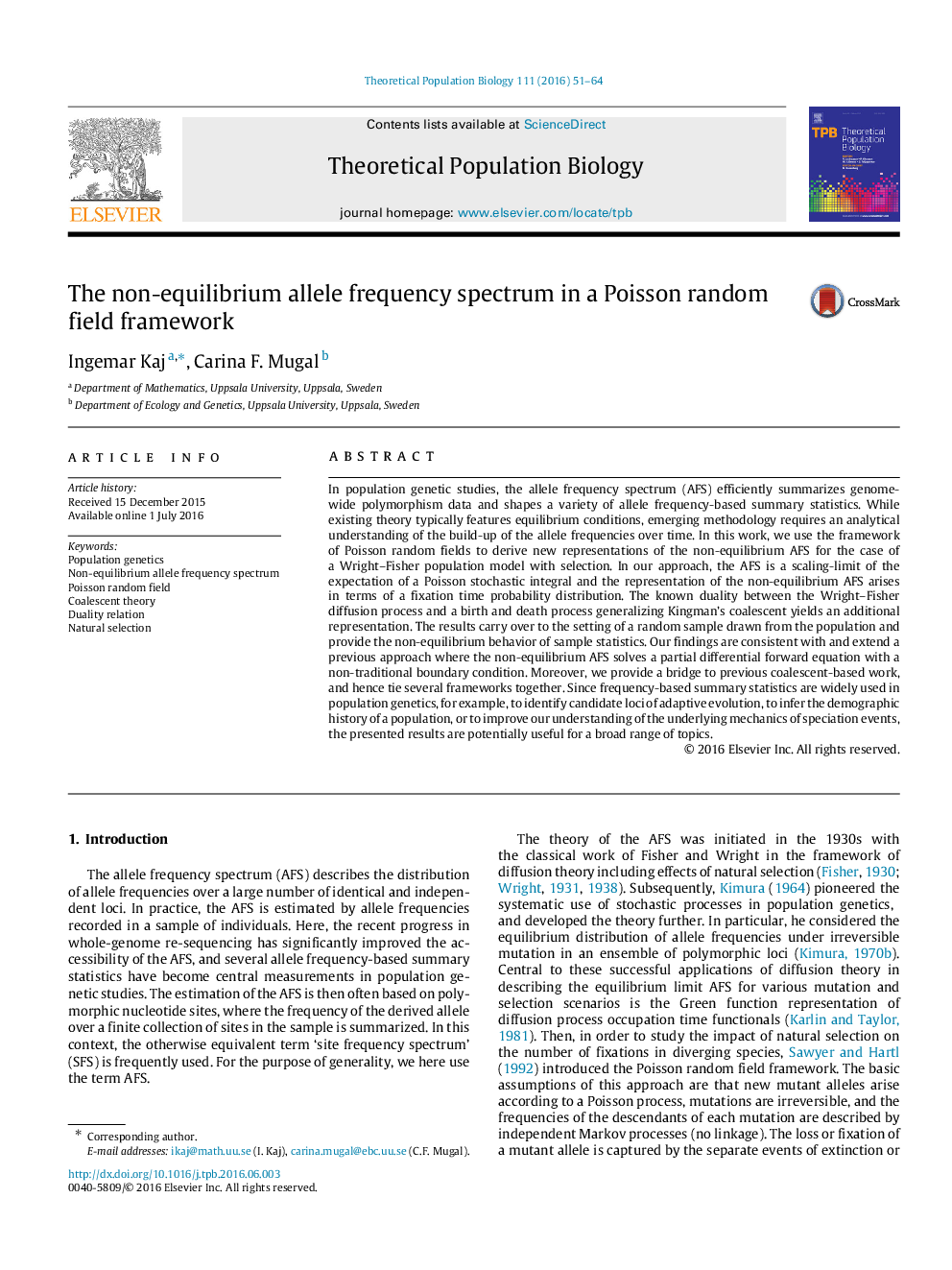| Article ID | Journal | Published Year | Pages | File Type |
|---|---|---|---|---|
| 4502243 | Theoretical Population Biology | 2016 | 14 Pages |
In population genetic studies, the allele frequency spectrum (AFS) efficiently summarizes genome-wide polymorphism data and shapes a variety of allele frequency-based summary statistics. While existing theory typically features equilibrium conditions, emerging methodology requires an analytical understanding of the build-up of the allele frequencies over time. In this work, we use the framework of Poisson random fields to derive new representations of the non-equilibrium AFS for the case of a Wright–Fisher population model with selection. In our approach, the AFS is a scaling-limit of the expectation of a Poisson stochastic integral and the representation of the non-equilibrium AFS arises in terms of a fixation time probability distribution. The known duality between the Wright–Fisher diffusion process and a birth and death process generalizing Kingman’s coalescent yields an additional representation. The results carry over to the setting of a random sample drawn from the population and provide the non-equilibrium behavior of sample statistics. Our findings are consistent with and extend a previous approach where the non-equilibrium AFS solves a partial differential forward equation with a non-traditional boundary condition. Moreover, we provide a bridge to previous coalescent-based work, and hence tie several frameworks together. Since frequency-based summary statistics are widely used in population genetics, for example, to identify candidate loci of adaptive evolution, to infer the demographic history of a population, or to improve our understanding of the underlying mechanics of speciation events, the presented results are potentially useful for a broad range of topics.
